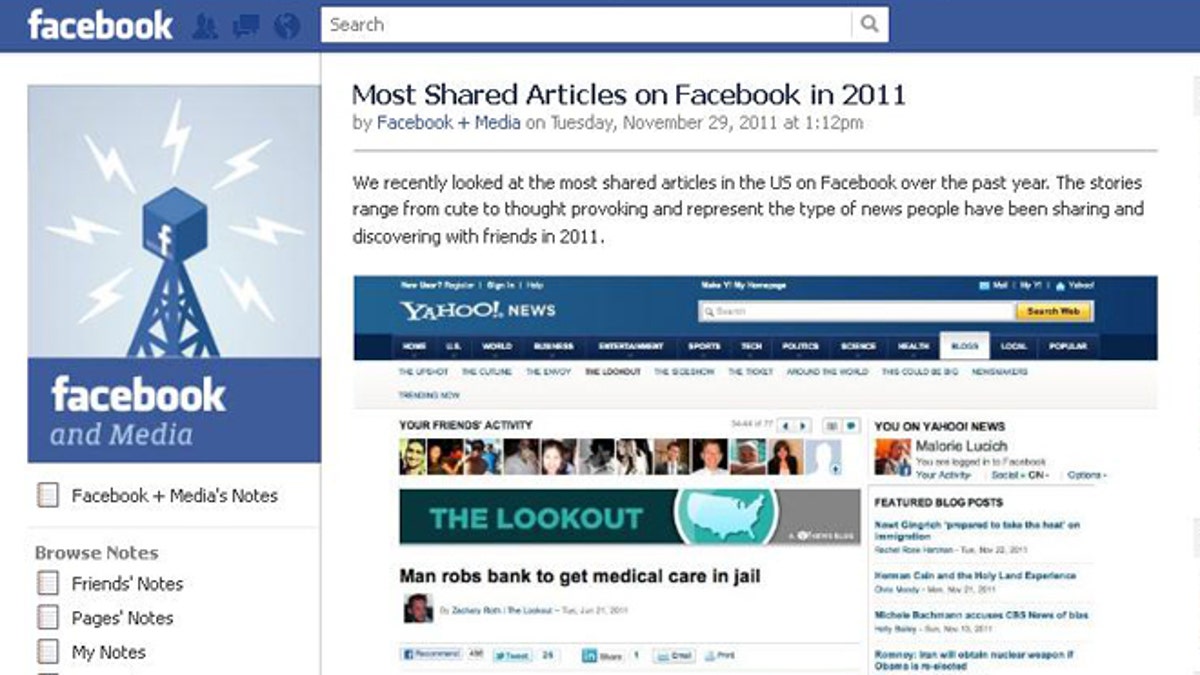
A list published on Facebook purports to reveal the most "shared" stories of 2011 -- but it remains unclear just how comprehensive that list is.
Is the world's largest social network acting unsocially?
Facebook shared a list Tuesday of what it called "The Most Shared Articles of 2011," which purports to measure the year's most talked-about stories. But the list is missing some of the most intriguing news stories of the year as reported by some of the world's largest news organizations -- including FoxNews.com, MSNBC, AOL and others -- leaving some observers scratching their heads.
"We looked for articles with the most likes, shares and referral traffic," Facebook spokeswoman Malorie Lucich told FoxNews.com.
But the list isn’t based on those numbers.
Instead, Lucich explained, it uses a mystery metric -- a recipe that combines all of them, divides by a cupful of clicked links, and adds a dash of secret sauce -- and ultimately ignores stories that readers would assume they could find on the list, no matter how you measure it.
The Facebook list begins and ends with stories from the New York Times, starting with pictures of Japan's Fukushima Daiichi Nuclear power plant after a devastating tsunami -- which had 131,085 "shares," according to data that Facebook makes available to developers -- and concluding with a story on Steve Jobs' patents, which had 11,800 shares.
In May, FoxNews.com wrote about a quirky page on the Centers for Disease Control's website that advises viewers how to deal with a potential zombie apocalypse (strange but true). That story received 38,649 Facebook shares -- well within the boundaries of the two New York Times stories, but not included in the list.
Other stories from FoxNews should have made the list as well, such as a September story about the White House condemning the death sentence of an Iranian pastor. It received 26,208 shares.
Facebook's "share" metric is distinct from the ubiquitous "like" buttons on the site, explained Andrew Montalenti, a software developer and the co-founder of website analytics company parse.ly.
"The difference between a share and a like is actually a different behavior within Facebook itself," Montalenti said in an email. "When a user 'likes' something, it's simply a one-click action … you click the 'Like' button and that's it."
"When they 'share' something, it's usually a multi-step action (you can share it with comments, for example, in which case it will appear as an entry on your wall and in your friend's news feeds)."
Yet Facebook's list of the "Most Shared Stories of 2011" isn't based on Likes or "shares" but a mystery metric the company refused to share, leaving many news agencies friendless.
The description posted with the story describes it simply as most shared stories: "The stories range from cute to thought provoking and represent the type of news people have been sharing and discovering with friends in 2011."
Well ... some of those stories, anyway.








































